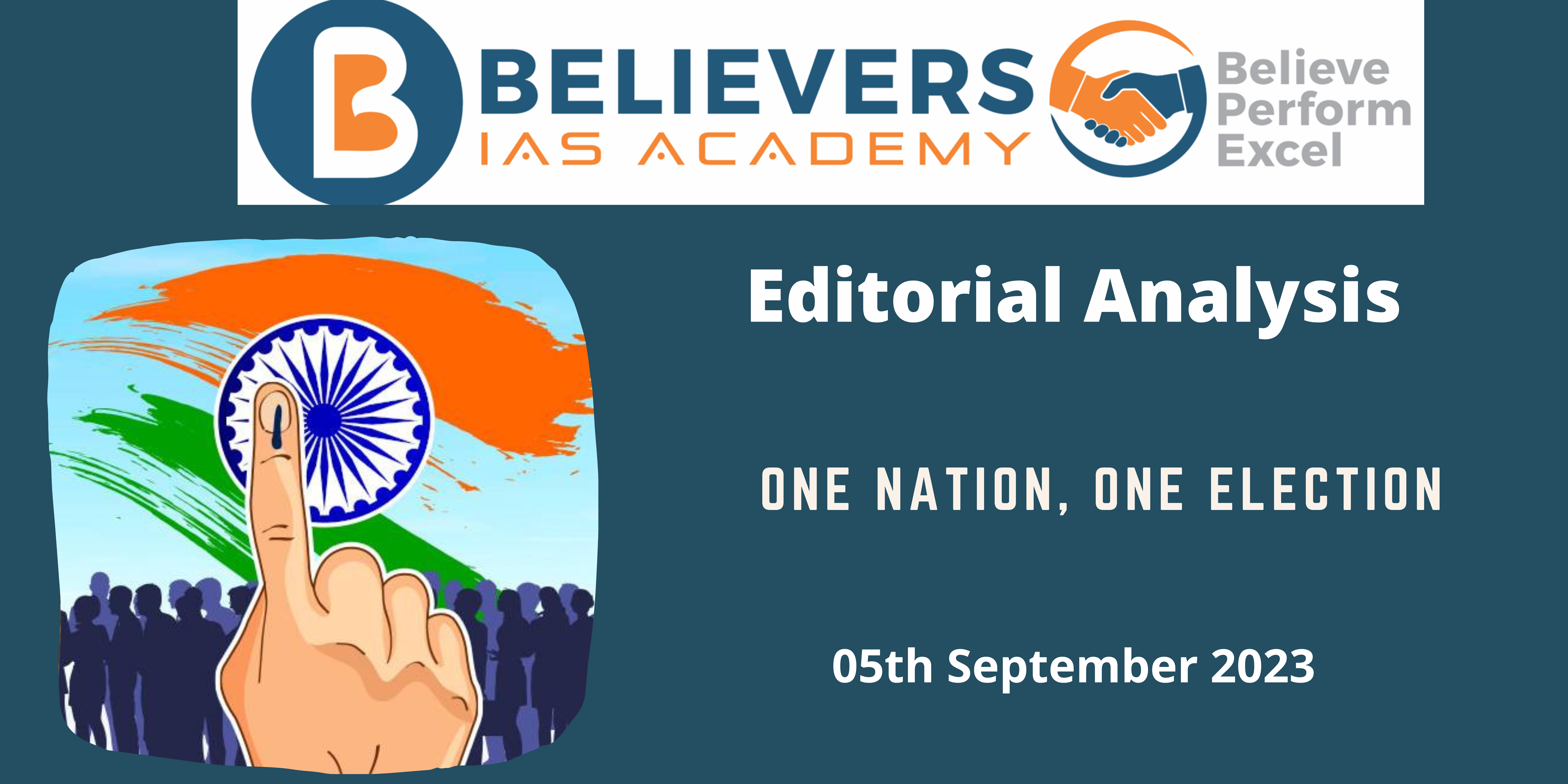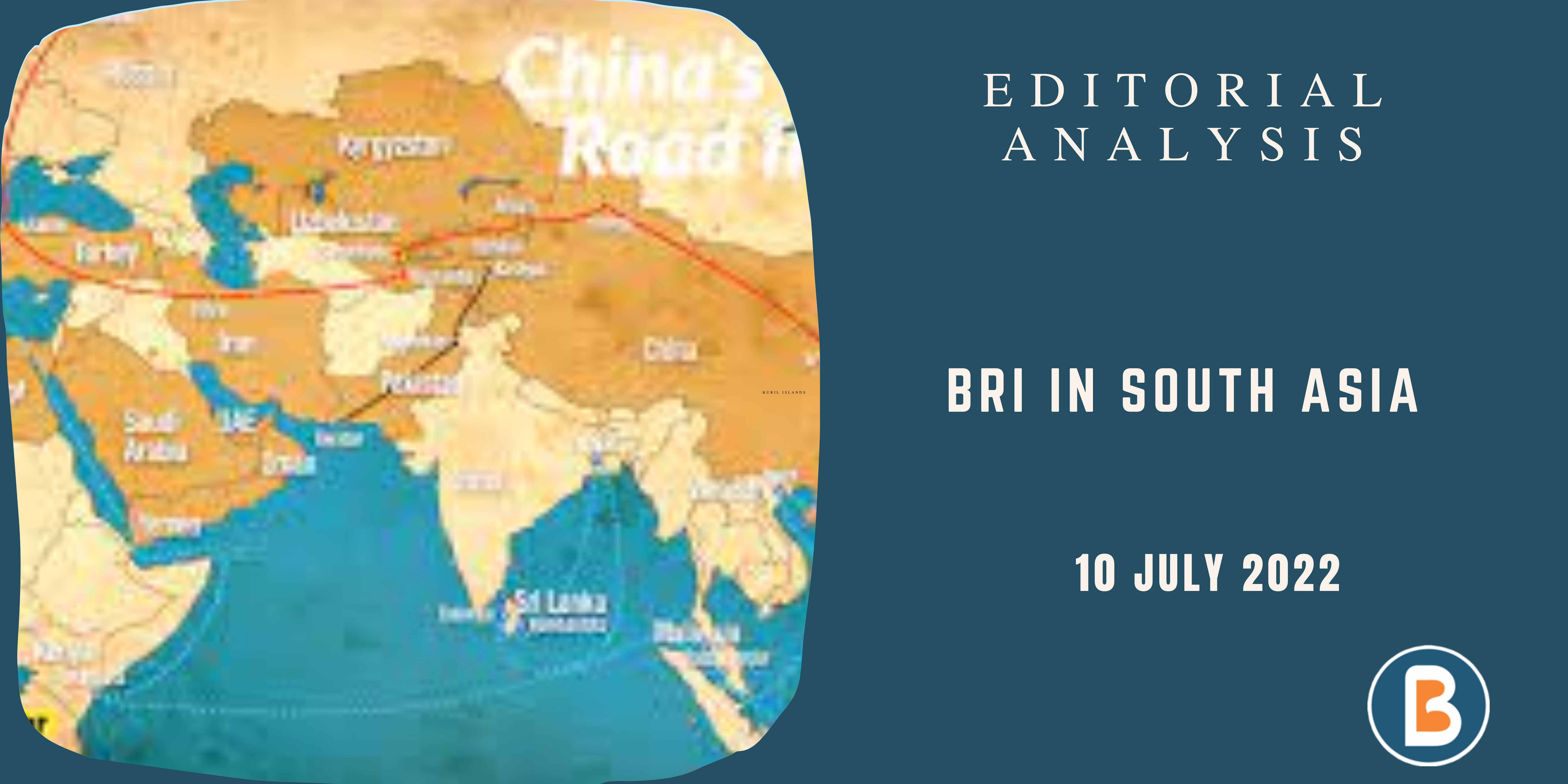One nation, one election
Context:
The concept of ‘One Nation, One Election’ has ignited a debate within India’s multi-tiered governance system. This idea raises questions about the core principles of Indian democracy and poses potential threats to the autonomy of States.
Relevance:
GS-02 (Indian Polity)
Prelims:
- Election Commission of India
- Supreme Court
Mains Question:
- What are the implications of ‘One Nation, One Election’ on India’s federalism and multi-tiered governance system? 250 words.
Dimensions of the Article:
- Multi-Tiered Governance and Electoral Democracy
- Coordinated Elections in Some States
- The Challenge of ‘One Nation, One Election’
- The Flawed Rationale
- Diverse Campaign Issues and Choices
- Need for Fixed Terms and Constitutional Clarity
Multi-Tiered Governance and Electoral Democracy:
- India’s governance framework, structured as a Union of States, is underpinned by the principles of electoral democracy. It allows citizens to select their representatives at various tiers of government, reflecting the essence of federalism.
- This multi-tiered structure assigns specific roles to representatives at the Union, State, and local levels, catering to diverse voter preferences based on party affiliations, candidate strength, ideologies, or local socio-economic considerations.
Coordinated Elections in Some States:
- While some States like Andhra Pradesh and Sikkim have synchronized their Assembly and parliamentary elections, it is primarily coincidental due to the alignment of their electoral cycles with parliamentary polls. This practice does not undermine the fundamental principles of multi-tiered governance or federalism.
The Challenge of ‘One Nation, One Election’:
- The BJP-led Union government’s proposal for simultaneous elections at all levels, as explored by a committee led by former President Ramnath Kovind, raises concerns about federalism and the sanctity of multi-tiered governance.
- One of the committee’s terms of reference, which contemplates the need for constitutional amendments and ratification by States, is constitutionally questionable and threatens the autonomy of State Assemblies.
The Flawed Rationale:
- The proposal ostensibly argues for simultaneous elections as a cost-saving measure and a way to curb perpetual election campaigning. However, these claims lack empirical support. The costs associated with conducting elections are not necessarily wasteful; they stimulate economic activity and contribute to campaign spending. Moreover, different elections at different times serve as opportunities for voters to hold representatives accountable and voice their specific concerns.
Diverse Campaign Issues and Choices:
- Conducting elections for different tiers at distinct times allows voters to make informed choices based on the unique campaign issues and democratic preferences relevant to each level of government.
- The BJP’s attempt to frame elections solely as a referendum on one tier or a single leader oversimplifies the democratic process. It ignores the complexities of India’s federal structure.
Conclusion:
- The ‘One Nation, One Election’ proposal challenges the bedrock principles of India’s multi-tiered governance and federalism. However, it suggests cost-saving on campaign expenditures, but these arguments lack substantiation.
- Preserving the integrity of multi-tiered governance and recognizing the diversity of electoral choices remains essential.
- A constitutionally sound approach is necessary to address the election issue in a vast and diverse nation like India.




